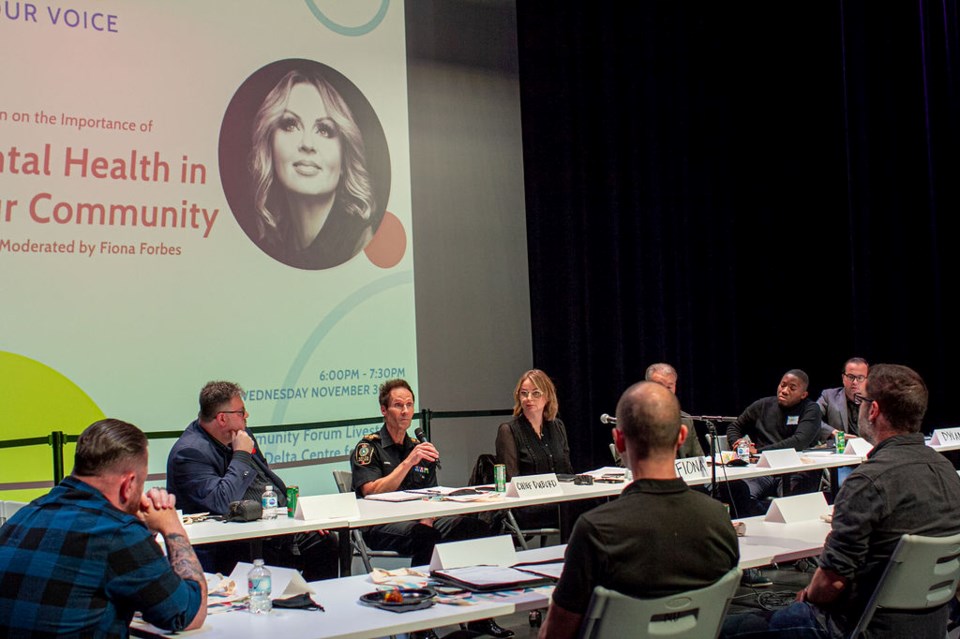With mental health at the forefront of the many issues the pandemic has highlighted to us, The Harmony Initiative Society (THIS) knew it was vital to host a round-table discussion about this important topic.
Moderated by TV host and producer Fiona Forbes, this year’s panel included perspectives from local government officials, leaders, mental health experts, media and concerned citizens. The panel, hosted on Facebook live, was held at the North Delta Arts Centre on Wednesday night, Nov. 3.
“Our goal is simple. We want to bring people together in harmony through arts and culture as our vehicle,” said THIS co-founder Warren Dean Flandez, at the beginning of the forum. “We want to shine a light on promoting connectivity and learning through immersive learning opportunities and meaningful experiences that we can engage our community with, to bring people together.”
The discussion kicked off with Mayor George Harvie laying out what work the city has done in terms of addressing the mental health crisis.
Among several initiatives, he highlighted how the city allocates $115,000 annually to support children and youth at risk through free counselling, $75,000 annually to the Phoenix Society and has been working to distribute “You Matter to Delta” brochures at city hall and other city facilities.
The pocket-sized brochures, which were created in collaboration with 12 community partners, has a list of resources and supports available to those living in Delta who are struggling with mental health or mental illness.
“I look forward to having conversations today to see what we can do better to ensure that Delta contributes [and collaborates] as much as possible ... with our service groups and, more importantly, help those people that need our help,” said Harvie.
Panelists were then asked a variety of submitted questions centring around their areas of expertise and own lived experiences, some of which included: how to deal with a panic attack, what to do if you or somebody you know is considering suicide, how to help youth and kids get through the isolation of the pandemic and what resources we can turn to when we need help.
“Most people feel unprepared or unskilled to have these conversations [with people who are struggling with their mental health] ... [these conversations] can be very complicated, but really, what somebody needs in that place is somebody who is going to listen. That’s it. Even if you don’t know what to do, just listen and then ask how you can help,” said Andrew Neufeld, co-founder and clinical director of Ladner-based counselling and therapy centre Alongside You.
Delta Police Const. Lee Chapman, who is the community liaison for North Delta and part of the Lower Mainland Integrated Crisis Negotiation Team, acknowledged how folks sometimes try to avoid talking about mental health issues like it’s “the plague.”
The panel continually affirmed how important it is to be open and have these conversations to fight against the stigma clouding around the topic.
If you’re interested in watching the panel discussion in full, check out The Harmony Initiative Society’s Facebook page at https://www.facebook.com/thisinitiative/, and for more information on resources within Delta, visit https://www.delta.ca/services/social-planning/endthestigma.



